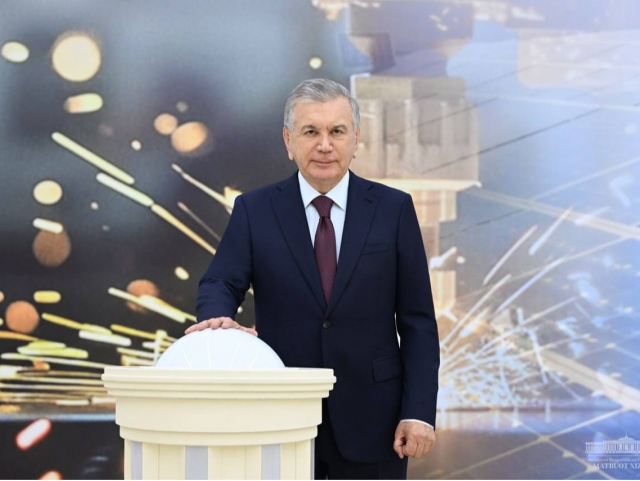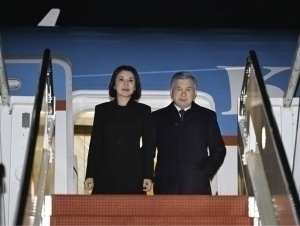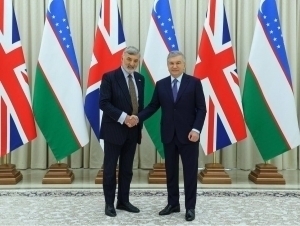Mirziyoyev launches $2 billion investment project
Local
−
14 October 2024 16645 4 minutes
On October 14, President Shavkat Mirziyoyev attended a ceremony in the Yangiyol district to inaugurate and kick off construction for several significant projects in the Tashkent region. The event marked the launch of nine projects with a combined value of $2 billion, as reported by the President's press service.
Over the past five years, the industrial output in the Tashkent region has increased by 1.5 times, reaching 107 trillion sums, while the volume of local exports has grown by 3.5 times, approaching $1 billion.
"A favorable business and investment climate has been a key factor in attracting investments and advanced technologies. In 2018, the region attracted $20 million in investments; by last year, this figure had grown to $1 billion. The number of enterprises with foreign capital participation has also risen, now totaling 1,700," the press release stated.
Currently, 91 foreign investment projects worth $20.36 billion and 28 local projects valued at $4.5 billion are in progress.
During the ceremony, President Mirziyoyev emphasized the importance of these initiatives, including the establishment of a special industrial technology park named "Great Silk Road" in the city of Olmalik. Spanning 227 hectares, this park will see a $1 billion investment and will host around 100 enterprises in sectors such as electrical engineering, textiles, construction materials, and pharmaceuticals. The project is expected to create 3,000 new jobs, generate products worth 5 trillion sums annually, and foster $300 million in export opportunities.
Additionally, a textile industrial park is set to be developed on 69 hectares in the Upper Chirchik district, with a $350 million investment. The complex will house more than 20 enterprises focused on yarn production, fabric weaving and dyeing, and finished textiles.
The President outlined an ambitious goal to double food production, increase exports fivefold, and triple the value-added products by 2030, with the Tashkent region playing a vital role in achieving these targets. Among the ongoing initiatives are new production lines in the Yangiyol district for 50,000 tons of mineral fertilizers and chemicals annually, alongside high-quality food production facilities in Kybray.
The Tashkent region also boasts significant energy potential, with a capacity of 5.7 gigawatts. Efforts are underway to expand this through six projects totaling over 800 megawatts, valued at $1.5 billion.
In line with Uzbekistan's focus on green energy, new initiatives aim to enhance energy stability across the country. By 2030, it is planned to build energy storage systems with a total capacity of 4,100 megawatts.
President Mirziyoyev noted the importance of three projects being carried out in collaboration with leading Chinese companies. Among them, a $240 million solar power plant is set to be constructed in Boka district by China Datang, generating 576 million kilowatt-hours annually—enough to power 240,000 households. This will bring the region’s total generation capacity to 6.5 gigawatts, with electricity production reaching 24 billion kilowatt-hours per year.
Two additional projects include $220 million, 200-megawatt energy storage systems in Parkent and Piskent districts, developed in partnership with China Energy Overseas Investment. These systems will help manage peak-time electricity demands, ensuring reliable energy supply for consumers.
In recent years, more than 400 megawatts of new hydropower capacity have been added nationwide, backed by $630 million in investments, raising the total to 2.2 gigawatts. Studies indicate the potential to build 44 new hydroelectric plants with a combined capacity of 3,280 megawatts, with the Tashkent region leading in hydropower potential.
Currently, the region operates 25 hydroelectric plants with a total capacity of 1,330 megawatts, accounting for 60% of Uzbekistan's total hydropower output. Four additional plants, with a combined capacity of 340 megawatts and an investment of $880 million, are under construction. By 2028, the region aims to implement 23 new projects, adding 2,400 megawatts in capacity at a cost of $4.8 billion.
Among the projects inaugurated at the ceremony were two small hydroelectric plants: a 2.5-megawatt station in Ohangaron district and a 1.5-megawatt plant in Bostanlik district. Together, they will produce 18.4 million kilowatt-hours of green energy annually, supplying electricity to 7,600 households.
President Mirziyoyev expressed his gratitude to the foreign investors supporting these projects and wished them success in their ventures. To mark the occasion, a symbolic button was pressed, signaling the official start of construction and operations for the nine projects, collectively valued at $2 billion.
Live
All8 nafar xitoylik Baykal ko'liga cho'kib ketdi
22 February





